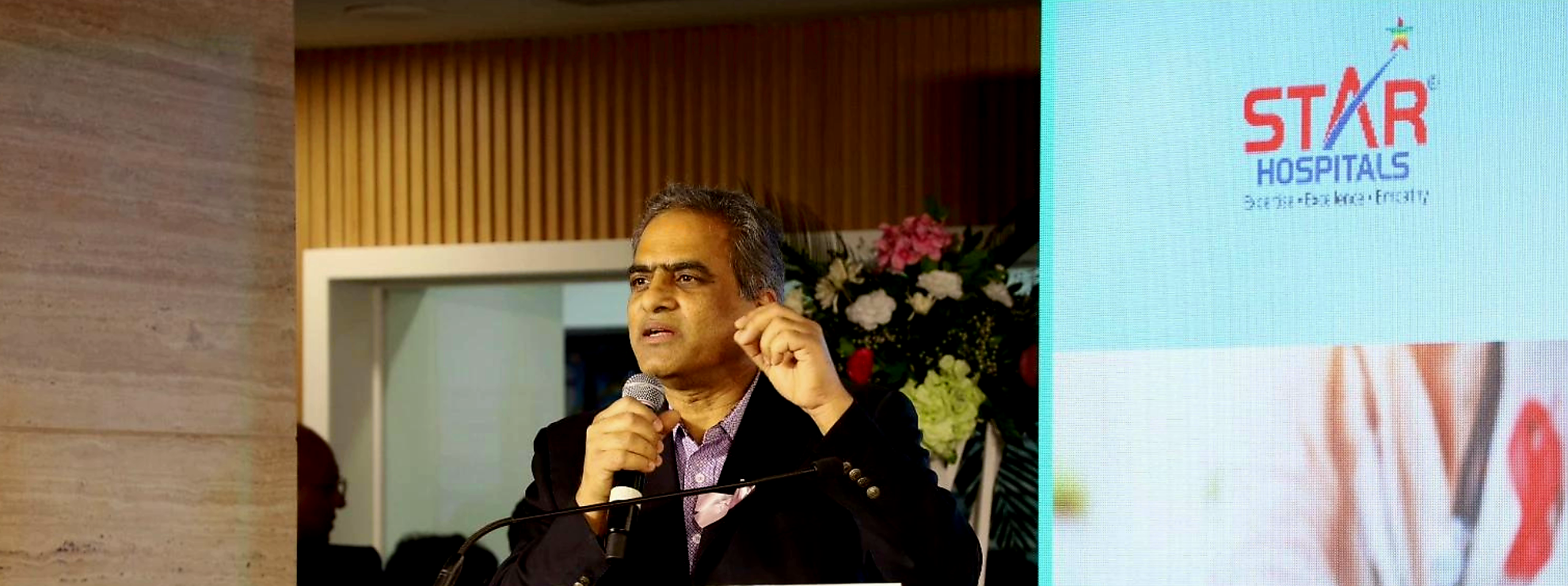(January 17, 2024) Dr Gopichand Mannam once asked Sachin Tendulkar, “The whole country expects you to score 100 every time you’re at the crease, and of course, we get very disappointed when you don’t. How do you deal with that kind of pressure?” The master blaster’s responded promptly, saying, “You know, it’s okay if I don’t score 100 this time, I can do it next time. But if you fail, the patient dies, and you have no other chance!”
“That reply by Sachin Tendulkar forever remains etched in my mind,” smiles Dr Gopichand Mannam, the managing director of Star Hospitals, as he settles down for an interview with Global Indian. The renowned doctor, who has performed several thousands of paediatric surgeries, including many critical ones and saved lives, is now working towards building a hospital dedicated to non-profit work, specifically for paediatric cardiology and cardiac surgery, along with training programs.
“By collaborating with like-minded organisations, I aspire to create a National Grid, a network that would ensure that children born into poverty with heart disease can access appropriate care, regardless of the complexity or geographic location,” says Dr Gopichand, who has patients from all over the country and different parts of the world visiting him everyday.
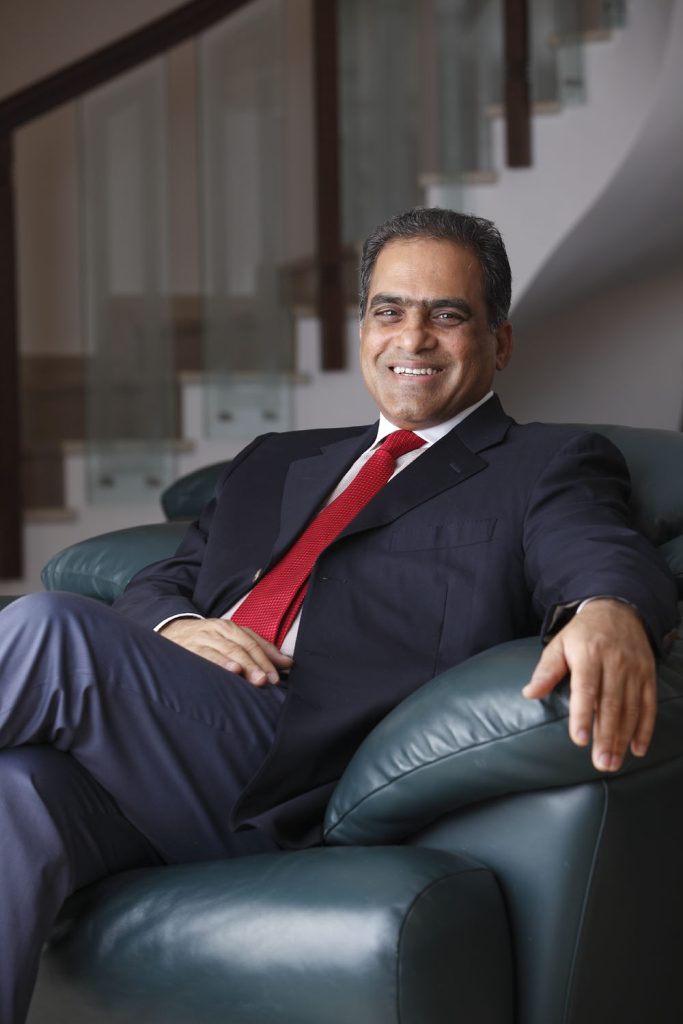
Dr Gopichand Mannam
Ongole boy
Born in Ongole, Andhra Pradesh in 1957, Dr Gopichand, the third among five siblings, was encouraged by his pharmacist father to become a doctor. “I was kind of a loose cannon and had no aim when I was in 10th grade,” Dr Gopichand admits. He began his education studied at a municipality-funded public school and moved on to a government school where he finished 10th grade. An avid sportsperson in high school, Dr Gopichand played cricket, Kho Kho and Mallakhamba, and was quite a movie buff as well.
In his early school years, Dr Gopichand was more street-smart than studious, he recalls. “I assisted with household chores, fetching water from the railway station as we did not have running water. Additionally, during summers, I helped my mother in the fields, where we did tobacco farming.”
As his father wished, Gopichand was sent to Guntur for a month-long training session to prepare for the medical entrance exams. A lack of focus, as well as the language barrier that came from having studied in Telugu-medium schools and writing an entrance exam in English meant he lost out in his first attempt, although he cleared it on his second try, gaining admission into Guntur Medical College.
At GMC
The early days in college were carefree and happy, spent having fun with new friends, although they would dedicate around three months to some serious studying before the year-end exams. Dr Gopichand’s professors were a good influence, who taught him the value of compassion and empathy.
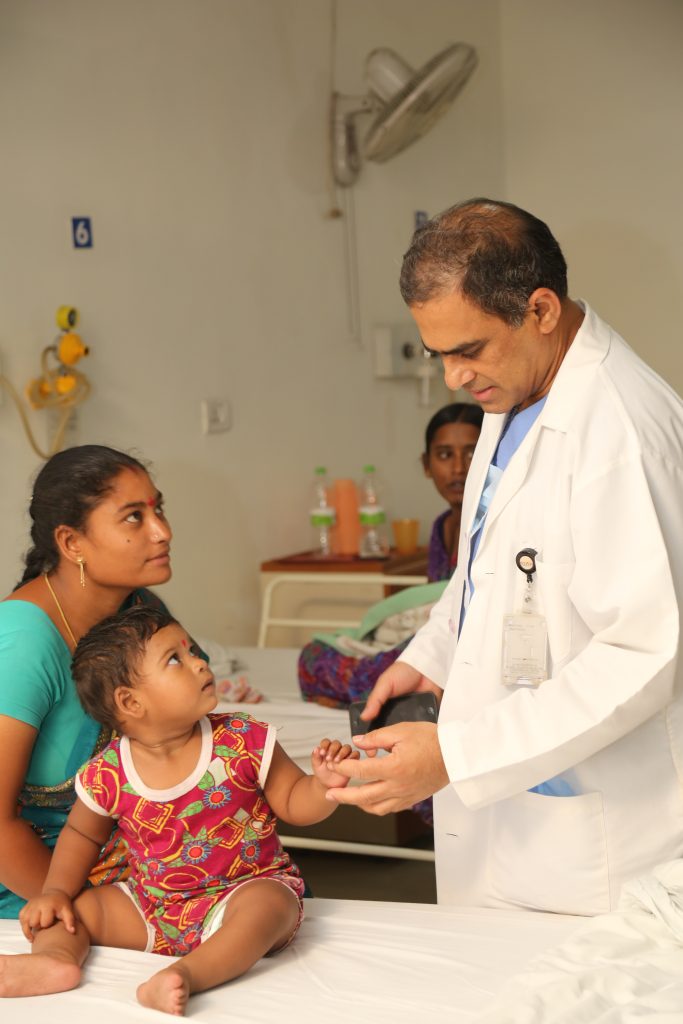
The real turning point came through tragedy, when Dr Gopichand’s elder sister passed away due to cardiac complications in 1979. “She underwent surgery at Vellore while I was in medical school, and passed away when I was in my final year of Medical College,” he says. This incident in 1979 made him aim for cardiac surgery.
Off to Jamaica
After graduation, Dr Gopichand hoped to go to the USA. “At the time, my colleagues were either heading to Jamaica, UK, or Africa to subsequently go to the US,” he says. He passed the ECFMG, which made him eligible to go to America but was told he couldn’t specialise in General Surgery, which was predominantly for locals. So, Dr Gopichand decided on Jamaica instead, and worked as a SHO at Victoria Jubilee Hospital, Kingston Public Hospitals, and later in a provincial town called Savanna-la-Mar, close to Montego Bay on the West Coast of Jamaica.
It was during this time that he met a Surgeon, Ramchandra Reddy, son of the renowned professor and pillar of Gunter Medical College, Professor DJ Reddy. “He taught me the initial surgical techniques, giving me confidence in performing appendectomies, abdominal operations and much more,” says Dr Gopichand, who conducted a good number of surgeries confidently.
General surgery in the UK
After passing the UK’s PLAB exam on his first attempt, Dr Gopichand joined general surgery and worked across the country for the next three years. Later, he appeared for exams in both Glasgow and Edinburgh Royal Colleges, passing both Fellowships in general surgery. He commenced his serious cardiac surgery training in 1989 in Glasgow, working there for 2.5 years. “By that time I was independently operating after doing over 150 cases as a senior registrar. It was an invaluable experience and laid the foundation for my Cardiac Surgery training program.”
Then, in 1991, he moved to Brompton Hospital in London, where over the next three years, he learned many lessons, including how to “hold my ground in a competitive environment where everyone is striving to undermine you,” Dr Gopichand says. It was also in Brompton that he made his first foray in paediatric surgery. “I had exceptional professors who taught me Thoracic Surgery, adult cardiac surgery, and paediatric cardiac surgery,” he says. In 1994, Dr Gopichand went to London’s Royal College to appear for FRCS Cardiothoracic Surgery and successfully passed.
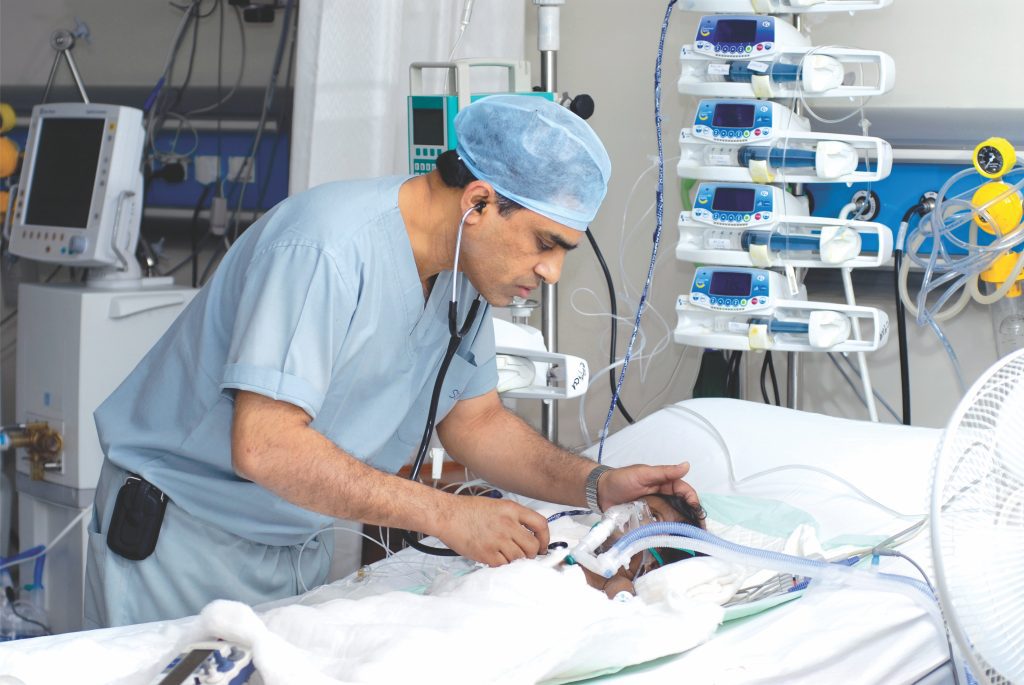
Subsequently, he returned to India by the end of 1994 and worked in various hospitals including Care Hospital. Eventually, he went on to start his own — Star Hospitals in November 2006.
Currently, Star Hospitals has a team of over 150 doctors, performed more than 85,000 surgeries and treated over 25 lakh patients. They excel in cardiology but also offer medical gastroenterology, surgical gastroenterology, Hepatology, Orthopedics and a range of other specialisations.
Early riser
Even now, Dr Gopichand’s day begins at 5.30 am and he is in the hospital by 7.30 am to attend to outpatients before proceeding to the operating theatre. He typically has 25 to 30 patients a day performs about 6 to8 procedures. During breaks, he attends to administrative responsibilities including meetings or discussions with his team. “Ideally, I hope to head home by 7:30 pm, but occasionally it might extend to 8:00 pm. This routine has been understood and accepted by my family from the outset, primarily because my wife is also a doctor,” informs the MD of Star Hospitals. Presently, most critical surgeries are handled by his team.
Staying physically fit is essential to build the endurance needed for longer operations. “There are times when we have to stand for six-seven hours, so good physical health is paramount,” Dr Gopichand says. He walks five kilometres every morning and spends another 25 minutes doing push-ups, stretches and planking. He also follows a non-carbohydrate diet. “I primarily consume millets. I am always mindful of my weight because I have a family history of diabetes.”
Finding mental composure
By his own admission, Dr Gopichand says he used to be rather aggressive as a person. “If someone did something I thought wasn’t right, I would confront them, only appreciating their efforts when they were doing well. But now, I’ve become much more composed. I’ve realized the importance of guiding people who might not be doing things correctly.” He keeps at managing his temper, by listening to podcasts and going for walks. He also has a solid group of friends, the CEO Club Inner Circle, with whom he shares inadequacies, moments of happiness, ambiguities, and all those things.”
Inspired by Kalam
Dr Gopichand has had quite a few interactions with the then President of India Dr APJ Abdul Kalam at Rashtrapati Bhavan.
“We talked about a lot of interesting life facts. He encouraged me to focus on what is right rather than doing something for some benefit. That’s how through that conversation, our Hrudaya Foundation was born,” informs the doctor. He says each child presents a challenging case.
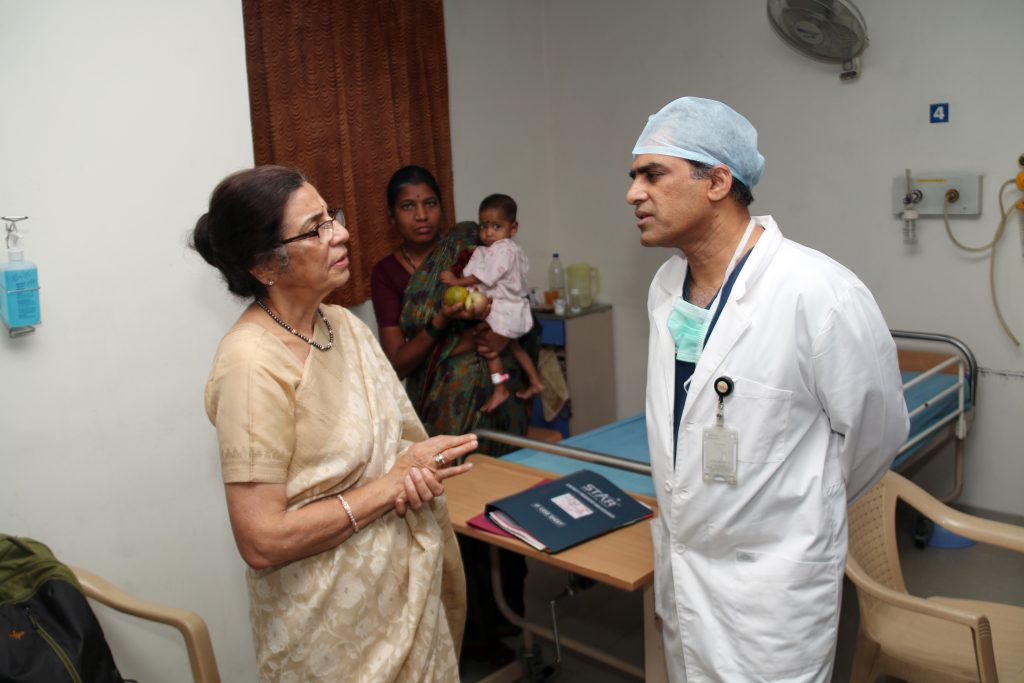
Challenges in the fraternity
With so many medical colleges opening up, says Dr Gopichand, there “is a shortage of qualified and dedicated faculty in almost every specialty. Private colleges are competing to hire retired professionals, while government hospitals are striving to retain their teachers.” Meanwhile, medical students lack opportunities for structured learning – “Patient examinations have ceased, resulting in a complete decline in clinical skills. Even college attendance seems to be merely for the purpose of writing exams.”
We seem to have lost sight, he says, of the fundamental qualities that a medical professional requires. “Attributes like empathy, honesty, continuous learning, and commitment to their work seem overshadowed by a rush to earn money. While this may be a generalization or an unfair assessment, it’s the impression I often get,” says Dr Gopichand.
Future plans
Dr Gopichand intends to continue operating for the next five years, if not longer. “I’m keen on training at least three individuals each year in future cardiac surgery,” says the doctor, who is highly focussed in research as well.
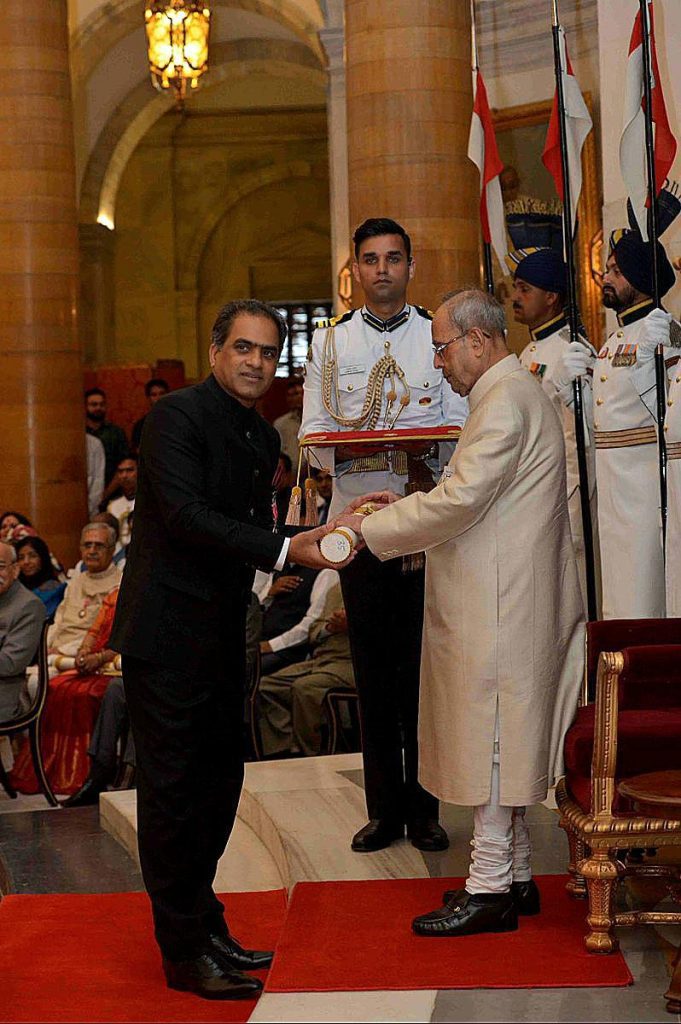
Along with his senior colleague, Dr Lokeshwar Rao, Dr Gopichand has published over 100 papers in their specialty, drawing from their extensive experience of 33,000-34,000 operations in various aspects of cardiac surgery. He is also in discussions with some Western universities for collaboration, which hopefully will bear fruit within the next two years,” he informs.
On the hospital front, he plans to establish a new unit besides exploring new opportunities over the next five years.
- Visit the Star Hospitals website for more information.
Also Read: Dr Lokeswara Rao Sajja: From rural roots to 10,500 heart surgeries that saved lives
Also Read: How technology, expertise, and affordability are driving a surge in medical tourism in India
